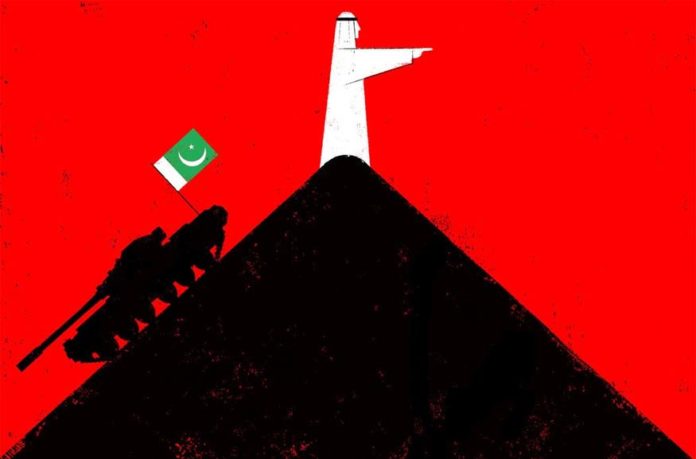Home Articles Pakistan, the Saudis’ Indispensable Nuclear Partner

ISLAMABAD, Pakistan — The Pakistani Parliament, even while stating its commitment to protect the territory of Saudi Arabia, recently adopted a resolution not to join the Saudi-led coalition fighting Houthi rebels in Yemen. Many Pakistanis are worn out by the Taliban insurgency at home and oppose intervention abroad, especially to fight an enemy whose name they are hearing for the first time and risk worsening relations with its backer, Iran.
The foreign affairs minister of the United Arab Emirates, Anwar Gargash, blasted the decision as “contradictory and dangerous and unexpected,” accusing Pakistan of advancing Iran’s interests rather than those of its own Persian Gulf allies. Pakistan was choosing neutrality in an “existential confrontation,” he said, and it would pay the price.
Pakistan’s federal interior minister, Chaudhry Nisar Ali Khan, responded that it was “unacceptable” for a friendly country to be “leveling threats.” But Prime Minister Nawaz Sharif, beholden to Saudi Arabia’s rulers for his safety after the 1999 coup that deposed him, is now under great pressure. Millions of Pakistanis work in the Persian Gulf, sending back vast remittances. Many of Pakistan’s politicians and generals have major investments in the region, and some have a deep affinity for Wahhabism. Rich Arabs in Pakistan are treated like royalty, allowed to flout hunting and environmental protection laws.
Small surprise then that some members of the Pakistani government have scurried to Riyadh to offer explanations. Or that some backpedaling has begun. Last week, the Pakistani military agreed to commit naval vessels to help enforce an arms embargo against the Houthis. This, however, will not undo the damage: The recent deterioration of Pakistan’s ties with its Arab benefactors, even if it turns out to be temporary, is unprecedented.
For Saudi Arabia, the Pakistani Parliament’s surprising assertion of independence was especially worrisome because it came on the heels of the American-backed preliminary nuclear deal with Iran. The kingdom has long feared rapprochement between Iran and the United States, as well as the development of Iran’s nuclear program. The influential former head of Saudi intelligence, Prince Turki al-Faisal, has described Iran as a “paper tiger, but one with steel claws.” According to documents disclosed by WikiLeaks, the late King Abdullah repeatedly urged Washington to attack Iran and “cut off the head of the snake.” And now under the recent nuclear agreement, which is to be finalized by the end of June, Iran’s breakout time — the time it would need to build a nuclear weapon if it actually set out to — would be just one year.
This development undermines Saudi Arabia’s longstanding nuclear strategy. In the 1970s, partly to extend its influence, partly in the name of Muslim solidarity, it began bankrolling Pakistan’s nuclear program. In gratitude, the Pakistani government renamed the city of Lyallpur as Faisalabad, after King Faisal of Saudi Arabia. When Pakistan seemed to dither after India tested five nuclear bombs in May 1998, the Saudi government pledged to give it 50,000 barrels of oil a day for free. Pakistan soon tested six of its own bombs. Later, the Saudi defense minister at the time, Prince Sultan, visited the secret nuclear and missile facilities at the Kahuta complex near Islamabad, which had been off-limits even to Prime Minister Benazir Bhutto, by her account.
In exchange for its largesse, Saudi Arabia has received Pakistani military assistance in the form of soldiers, expertise and ballistic missiles. Pakistani pilots flew Saudi combat jets against South Yemen in the late 1960s. The Pakistan Air Force helped the Royal Saudi Air Force in its early years. Today Saudi officers train at Pakistan’s national defense colleges.
The Saudi government has taken the quid pro quo to imply certain nuclear benefits as well, including, if need be, the delivery at short notice of some of the nuclear weapons it has helped pay for. Some Pakistani warheads are said to have been earmarked for that purpose and reportedly are stocked at the Minhas air force base in Kamra, near Islamabad. (Pakistan, which has as many as 120 nuclear warheads, denies this, and to my knowledge, there is no precedent for a nuclear country transferring weapons to a non-nuclear one.)


